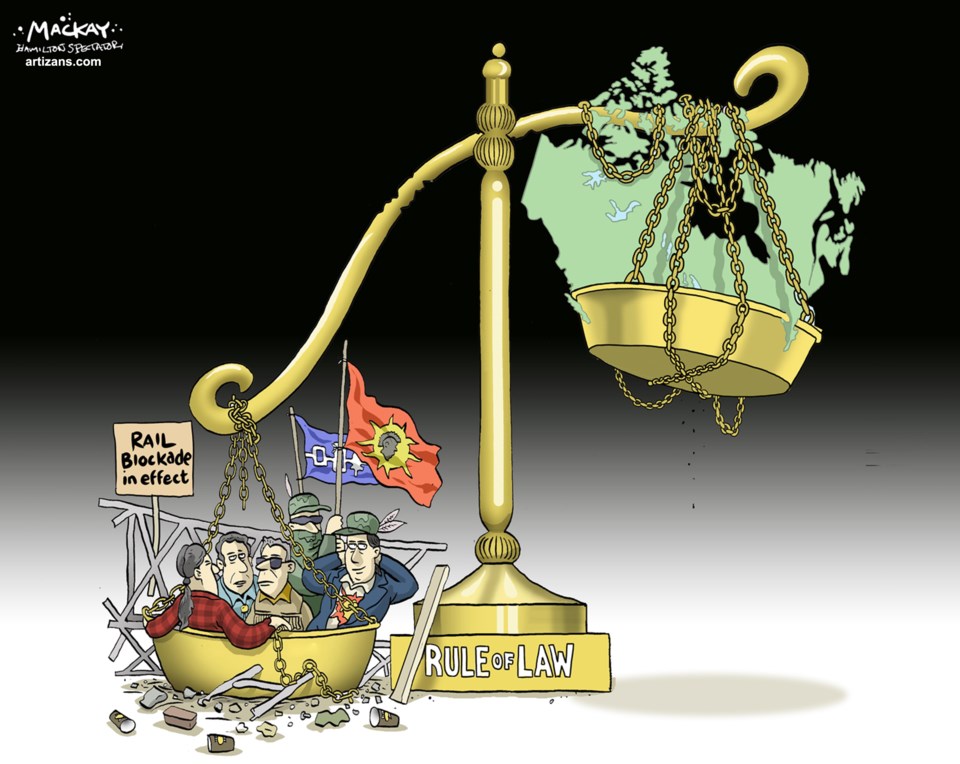When TransCanada withdrew its application for the Energy East Pipeline, you could have been forgiven for thinking that was a one-off. Surely, it won’t become the norm.
But we’ve seen counts ranging from $100 billion to $120 billion in cancelled projects over the last five years, with the $20.6 billion Teck Frontier oilsands mine being the most recent, and perhaps the deadliest, when it comes to confederation.
After striking out so many times, the economy and morale of Western Canada desperately needed a win. We needed to kick the ball, but the metaphorical Lucy, the current federal Liberal government, took it away again at the last second. As usually, many years and over a billion dollars had been spent on developing the now defunct project.
Remember, that $120 billion was just capital expenditure – to build the various projects. The economic output of them, combined, would have been many, many times, that. As in, it would have been more than the entire gross domestic product of some smaller nations.
What could Canada have done with that sort of money? Would the federal government be running deficits today, even with its profligate spending habits? Would the Alberta government be in deficit?
Would inboxes start overflowing with invitations to join some form of western separation movement, as they did again the day after the Teck Frontier project was killed?
If Northern Gateway and Energy East had been built by now, as they were both supposed to be in service before December 2018, would the horrendous differentials on heavy oil prices in late 2018 have cost Alberta billions, and Saskatchewan hundreds of millions, in that period? And would both provinces have seen their balance sheets buoyed by a dramatic reduction in that differential since then, as tidewater access on both coasts made its impact?
How many hospitals could have been built in Western Canada? How many weeks or months could have been taken off of surgical wait times? How many hours taken off emergency room wait times?
How many teachers, like the ones in Saskatchewan considering job action as this is being written, been placated with salary increases and additional staff?
How many kilometres of roads could have been repaired? How much more could have been twinned, instead of had passing lanes added? How many bridges built?
These are not idle questions. The losses to Saskatchewan in 2018 alone on the WCS to WTI differential could have paid the entire cost of the Jim Pattison Children’s Hospital in Saskatoon.
Tim McMillan, president and CEO, of the Canadian Association of Petroleum Producers, said on Feb. 24, “This is not the first major project to be abandoned, nor is it likely to be the last. This is the result of a system where – after nearly a decade of work in the permitting space, unprecedented consultation, support and agreements with Indigenous communities, and recommendations to approve from a joint review panel – a company feels it has no choice but to withdraw its application.
“This is bigger than one project; it is a pattern of projects. The decision speaks to the ongoing inability of major Canadian projects to succeed. Aside from yet another blow to Canada’s oil and natural gas sector, we must ask ourselves about the implications for Canadian industries as a whole. This time it was an energy project, but the next time it could affect a manufacturing, aviation, forestry or agriculture project.”
How many more blows can a nation’s economy take? How many multibillion-dollar projects have to strike out before no one will even consider investing in Canada – and that includes Canadian companies?
It’s not lost on us that TransCanada is now TC Energy, and Encana is Ovintiv. Both Canadian champions, both of whom now do more business in the U.S. Encana even moved there. Will TC Energy, and perhaps Enbridge, be next? Who will be left? Who will build our projects, develop and literally fuel our economy, when they all leave?
The reality now is the loss of Teck Frontier could be the final straw that breaks the camels’ back. The tolerance of rail blockades for weeks on end, in solidarity with the unelected Wet’suwet’en chiefs, had seriously bent that back already.
The cohesion of the nation is at stake.
It’s no small coincidence several more dates were soon announced in Estevan to sign the Wexit petition. A Feb. 11 political cartoon by our favourite cartoonist, Malcome Mayes, referred to rejection of Teck Frontier leads to Alberta ‘Texit’, as in Teck-exit. He perhaps prophetically posted that 12 days before the project was pulled.
Calgary MP Michelle Rempel Garner, one of the signatories to the “Buffalo Declaration” posted within hours of the announcement, “This can’t continue. Our country is broken. This decision, to me, says our country is closed for business, and the fault of that lies at the feet of our federal government, led by Justin Trudeau.”
“This is a fault line decision that will need to be addressed,” she added.
“Enough is enough. The time for politeness is over. The time for sitting back, and taking it, is over,” she concluded.
That’s a conclusion being reached widely across Western Canada now.



